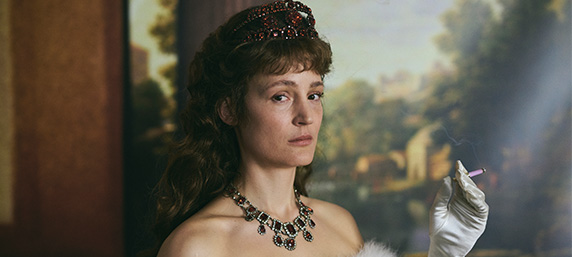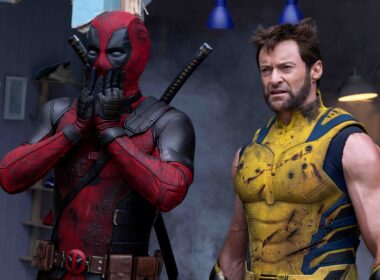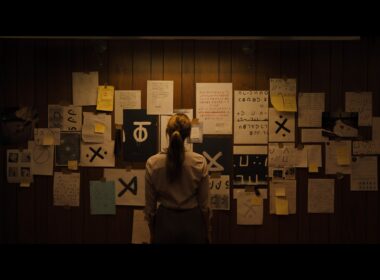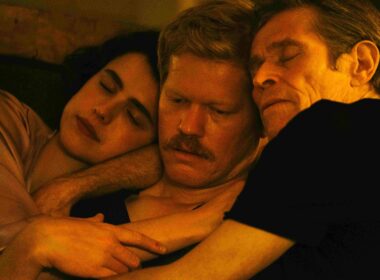TICKET GIVEAWAY
The Law Society Journal and Kismet movies have three double passes to offer for the upcoming Academy Award nominee Aftersun
Sophie reflects on the shared joy and private melancholy of a holiday she took with her father twenty years earlier. Memories, real and imagined, become a powerful and heartrending portrait of their relationship as Sophie tries to reconcile the father she knew with the man she didn’t. Aftersun stars Best Actor Academy Award Nominee Paul Mescal. In cinemas 23 February.
To win one of the passes, please email us your name and LawID number with the subject line AFTERSUN to [email protected] before 10am Tuesday 15 March.
The Son
When Florian Zeller adapted his own play The Father, it showed the potential of giving the keys of film directing to someone from a theatre background. In a play the only point of view is that of the audience, absorbing the story in real time from only one angle. In a film, though, you can change the point of view whenever you want and you can control what the audience sees. Theatre feels real and tactile, drama can and should be heightened because it’s easy to believe your characters behaviour if you are looking at their three dimensional physical presence. Film is fake, is two-dimensional, you have to be contained because some of that dramatic overreaction may not translate when seen from a screen projecting the light that comes from a machine unspooling an exposed reel recorded years ago. Theatre is present, film is memory.
I find it exciting when a playwriter moving to film. It’s like a child discovering a new sandbox. They’re often untouched by the constraints of studying film and approach the material like a blank slate. You can actually see it through the way they move the camera, as if they are discovering a new type of freedom that theatre never gave them.
You could see that in The Father. I remember that long argument scene at the dinning table following Anthony Hopkins that ends the same way it started. It heightens his descent into dementia perfectly because for most of the time the camera doesn’t let him go. Zeller, on that moment, is discovering the wonders of movement.
I’m sad that for his new film, Zeller lost the curiosity spark. Also based on his play, The Son is part of the same thematic trilogy of The Father (just missing The Mother now). It tells the story of Peter (Hugh Jackman) and the relationship with his severely depressed son Nicholas (Zen McGrath). At the start Nicholas is living with his mother Kate (Laura Dern), with whom the relationship is already strenuous. Because he’s been ditching school, his parents hope that moving in with Peter and his young pregnant girlfriend Beth (Vanessa Kirby) will help him get back on track. After all maybe what he needs is a father figure.
Peter can’t be present at all times, and Beth isn’t emotionally equipped to deal with this situation, so while Nicholas still spends the day just walking aimlessly around New York, he tells his father that school is great, he has a lot of friends, maybe even a girlfriend.
We suspect that Nicholas is lying, but Peter trusts his son who couldn’t possibility lie to his father like he did to the mother. As Peter continuously denies there isn’t anything wrong with his son, or that all he needs to do is hear what the problem and try to fix it, Nicholas gets progressive more isolated, more prone to emotional outbursts, and more depressed.
The problem with this is that there is a simple way of portraying this dynamic, and an overly complicated way, and Zeller choses the latter.
Zeller’s approach to the sensitive material is so heavy-handed that it becomes cheap translated in the big screen. Maybe the play spends most of the time with Peter so Nicholas’ behaviour comes as a surprise that no one, not even the audience was expecting, but because we hang out enough time with the teenager in the film, it’s evident how underwritten his condition is. He has no interests, no qualms, no passion. Just an almost poetic melancholy like he’s a walking Smiths song. The brittle personification of the “you just don’t get it DAD!”-teenager.
Zeller does entertain the idea that Nicholas may be affected by the divorce, or maybe it’s the fact that his father is with a younger attractive woman, maybe it’s a case of generational fatherly neglect that stems from how his own grandfather (Anthony Hopkins) is emotionally detached to his own son.
But none of these questions are relevant in the long-winded and eye-rolling shout matches. It needed the same contemplative quietness Zeller had in The Father, and a strong central performance to carry it – Jackman is horribly miscast here, having neither the intensity nor gravity to match Zeller’s script.
But worst of all it doesn’t have the same playfulness that Zeller showed in the first film. It feels like the second movie of an actual film director, and not the visual rule breaking he so promised before.
Verdict: 2 out of 5
For those emo kids who now work cushy finance jobs. If someone ready to understand both father and son here, it’s them.

Corsage
The big trick played by Corsage, Marie Kreutzer’s new film with Vicky Krieps as Empress Elizabeth of Austria, is how it doesn’t address its anachronisms. It takes them for granted, makes them part of the world. Unlike Sofa Coppola’s Marie Antoinette, where royalty peruses their opulence wearing Chuck Taylor’s to the tune of Bow Wow Wow, Gang of Four and The Strokes, Corsage doesn’t make a big deal out of that transgression. Things look perfectly normal and then you notice a door that couldn’t be from the XIX century, a lady plays Help Me Make It Through The Night. Or my favourite part, when Elizabeth meets a ear-pierced Louis Le Prince, inventor of an early prototype of the cinematographer, shows her a roll of 16mm film that wouldn’t be invented before the 1920s.
This heightens the artifice, like we’re watching actors that any moment can break the character and run away. It feels both liberating and claustrophobic.
Elizabeth will become a symbol of royal hyper femininity. Perpetuated in films and romantic novels as the beautiful perfect princess. My grandmother loved to watch the wold Sissi films with Romy Scheider in the role. I never really understood their appeal, not a lot of interesting was happening, there was no intrigue, no action, not even convoluted political plots. Now I get it, though. They played as royal porn for the commoners, with a classy amount of opulence that felt unreachable merely because we could never have as good taste as the Hapsburgs did.
Sissi wasn’t a complicated character. She was good, and beautiful. So beautiful that she could’ve only been blessed. An idea of beauty that is probably perpetuated to today. Sissi was perfect.
Corsage starts with Sissi getting dressed, tightening her corsage to accompany her husband, emperor Franz Josef, on an official business. As soon as they leave the carriage, Sissi faints from lack of air. The following scene she’s explaining to a friend how to believably faint.
Everything has to be fake in Sissi’s world. With a complete lack of control of her life she fights to find a corner where she can be respected. She understands politics but knows that no man will talk to her seriously about it. She tries to regain control of her oppressed sexuality, her style, even her hobbies. At some point she regains control of her narrative after she’s told that people are gossiping about her and other male acquaintances.
For most of the part Krieps plays Sissi with such joy, the performance is in itself a feminist statement. But is when Krieps melancholically muses about her woes, that Krieps knows how to grab our attention. What an actor she is, complete like very few are – on the level of Isabelle Huppert, Gena Rowlands or Toshiro Mifune. The moment with Louis Le Prince is particularly striking – Sissi confesses her disdain for the painting and the photograph, still images that can’t even begin to perfectly represent a person (her legacy will be betrayed by these images), as only film can only tell truth. To finalise the scene she asks Le Prince if his machine is also listening. When he says no she finally finds the potentially: “So I can say anything I want as long as I keep smiling”. And in that moment of earnestness she shouts obscenities that are lost in the silent of the moving picture.
Verdict: 4 out 5
For those who think that period dramas are nothing but glorified chauvinistic exercises that whitewash an era oppressive to women




